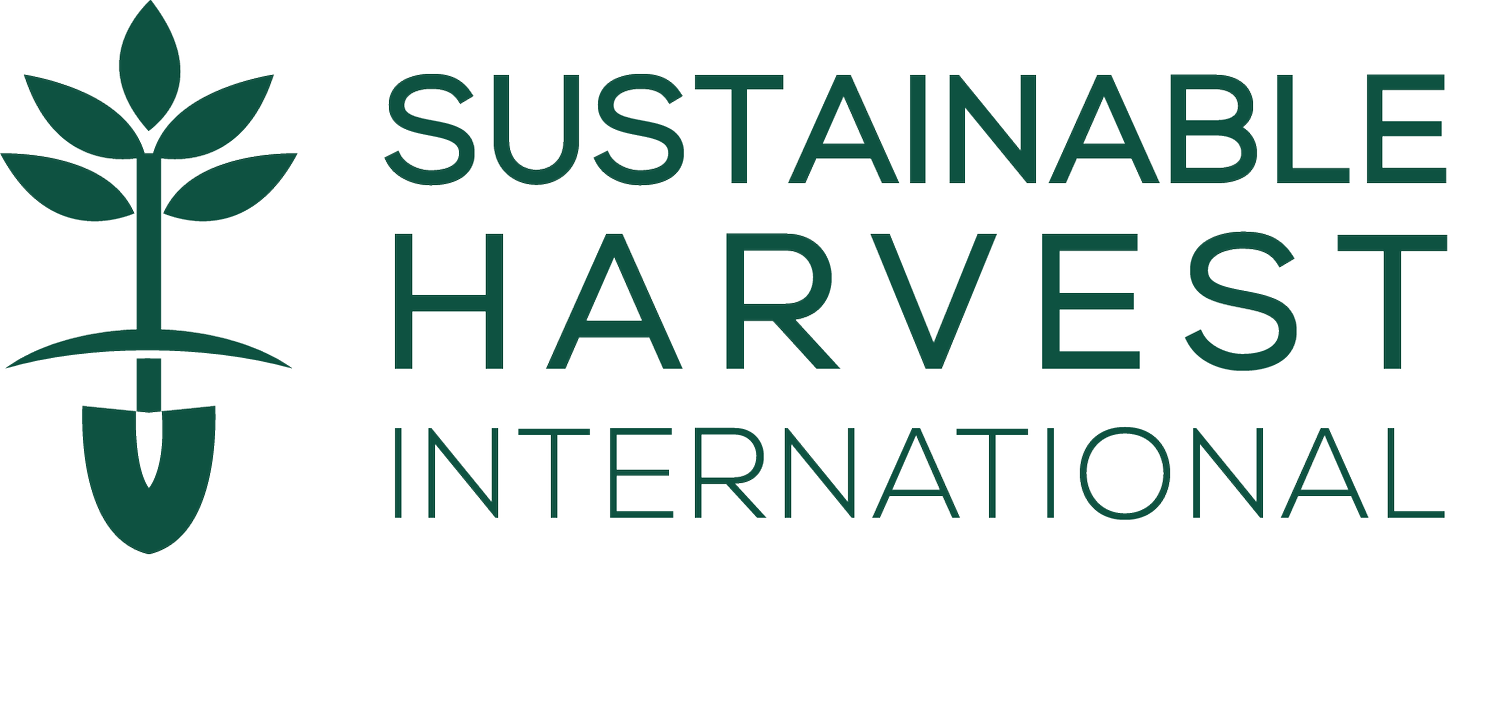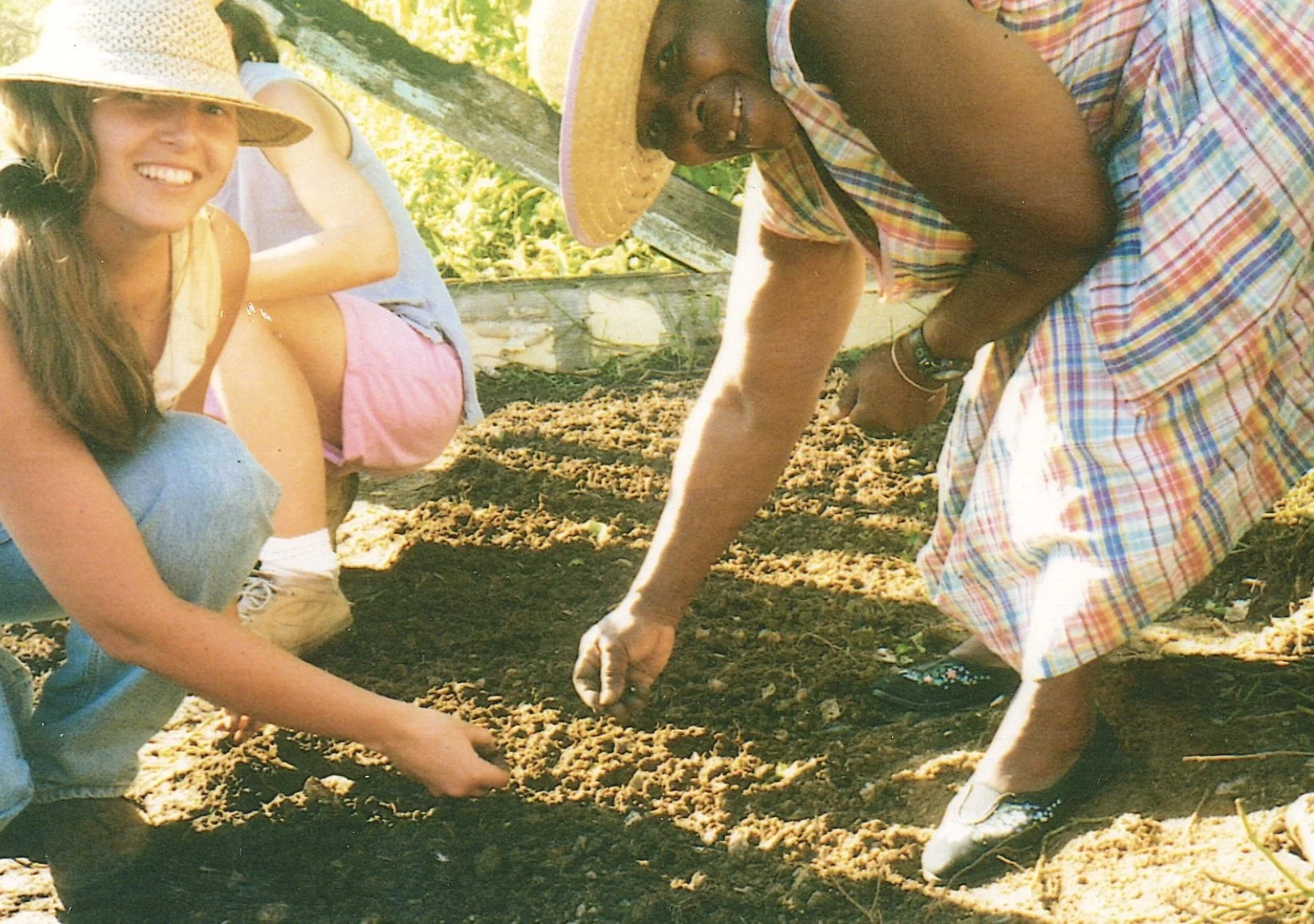History
Our Founding: Where It Started
Florence “Flo” Reed, SHI Founder, helps establish a tree nursery in Santa Rita, Panama
In the early 1990’s, Florence “Flo” Reed served as an agroforestry Peace Corps volunteer in Panama. During her service, she witnessed farmers burning forests for farmland, hoping to grow enough food to feed their families.
The new land produced food for only a few years, leading to ongoing deforestation. Reed knew that the farmers recognized the catastrophic impacts of slash-and-burn agriculture, but they didn’t see any other way to provide for their families.
In 1997, Flo Reed, SHI Founder, plants seedlings with SHI-Belize farmer Ermita Roches
Through living, eating, and working alongside these farmers, Reed realized that practical training in more sustainable agricultural methods could provide them with a way to better provide for their families while protecting and restoring ecosystems. Determined to find an alternative to slash-and-burn farming, Reed conducted extensive research on sustainable methods during her Peace Corps service and trained local farmers in new techniques and tools. Together, they restored the land and increased food production. As a Peace Corps Volunteer, however, the time Reed had to train farmers on sustainable agriculture and agroforestry was limited. It was through this experience that Reed saw the need to create a multi-year program that would give farmers ample time to learn, experiment, adjust, and adopt these new practices.
Reed connected with so many farmers in Coclé, Panama that her Peace Corps Program Director joked that they should rename the province "Floclé" for all the work she had done to create lasting environmental and economic change there.
Inspired by the success of these sustainable techniques in meeting the needs of farmers and the environment, Reed set out to build upon this tremendous potential and expand across Central America. Securing funding, building a team, and ensuring local community support were essential steps in the process. Much of the early planning took place in a spare bedroom of Reed’s parents’ home, becoming SHI’s first office.






